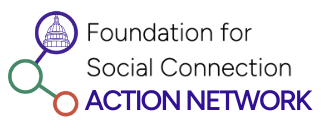This year National Nurses Week, an annual holiday to recognize the millions of nurses whose dedicated care is essential to our healthcare system, happens to coincide with the last week of the national COVID-19 public health emergency (PHE) declaration. It’s impossible to overstate the impact the pandemic had upon our nation, but especially upon nurses and other front-line healthcare workers. Between 2020 and 2021, the U.S. lost an estimated 562 nurses to COVID-19 related deaths, accounting for one in three deaths of healthcare workers (Guardian).
The care and dedication exhibited by nurses throughout the pandemic has taken a significant toll on the workers, nurses, and advocates. These groups have begun sharing harrowing stories, surveys, and data illustrating how the immense stress and upheaval of the pandemic are contributing to industry-wide nurse burnout and isolation across the nursing workforce.
Here’s what we know:
- Most nurses saw their workloads increase (NCSBN).
- Over two-thirds of nurses experienced verbal abuse and two out of five (40%) experienced physical violence (AAOHN).
- Nearly half are fatigued or burned out every day or week (NCSBN).
- Younger, less experienced nurses had more negative views of the profession and higher stress than their older coworkers.
During the height of the pandemic, hospitals, intensive care units, and emergency departments were overwhelmed with critically ill patients. Soon the nurses and other staff themselves became ill with COVID-19 due to shortages of personal protective equipment, further stressing already overloaded care teams. Similarly, nurses and aides working in long-term care facilities or home and community-based programs struggled as waves of infection swept through the acutely vulnerable individuals they cared for.
Throughout the pandemic, an additional 100,000 nurses left the workforce due to stress, burnout and retirement (NCSBN). Looking forward, another one out of every five nurses is projected to leave the healthcare workforce entirely, a staggering loss our healthcare system cannot sustain.
How can we support our nurses and other healthcare workers?
As we reflect on ways to honor nurses this week, we look to Congress to begin enacting policies to support and strengthen nurses across the healthcare settings in which they care for patients. CESIL’s 2023-2024 Policy Priorities recommend that Congress and federal agencies:
- Establish and disseminate grants to improve the mental health of providers to prevent burnout, especially beyond the COVID-19 PHE.
- Support policies that increase access to Medicaid-funded long-term services and supports, to provide formal, paid caregiving and other home and community-based services and supports;
- Support collaborative methods to address social isolation and loneliness in the workplace environment; and
- Provide funding to states for Continuing Education (CE) on the value of integrating care related to social isolation and loneliness, and integrating social connection into treatment and prevention efforts, for health care providers.
My family and I will always cherish the compassion and bravery of the team of nurses and aides who visited my grandfather daily to help with his severe asthma, COPD, auto-immune disorders, and eventual palliative care in the earliest stages of the pandemic. They entered his home, knowing each time they risked another exposure, and still chose to care for him. And every time they visited, the care they provided was invaluable. My mother and grandmother could not have met my grandfather’s care needs at home without the support of this committed nursing team. Still, while the act of caregiving is deeply meaningful, nurses need adequate support from their employers and policymakers to continue providing essential care.

